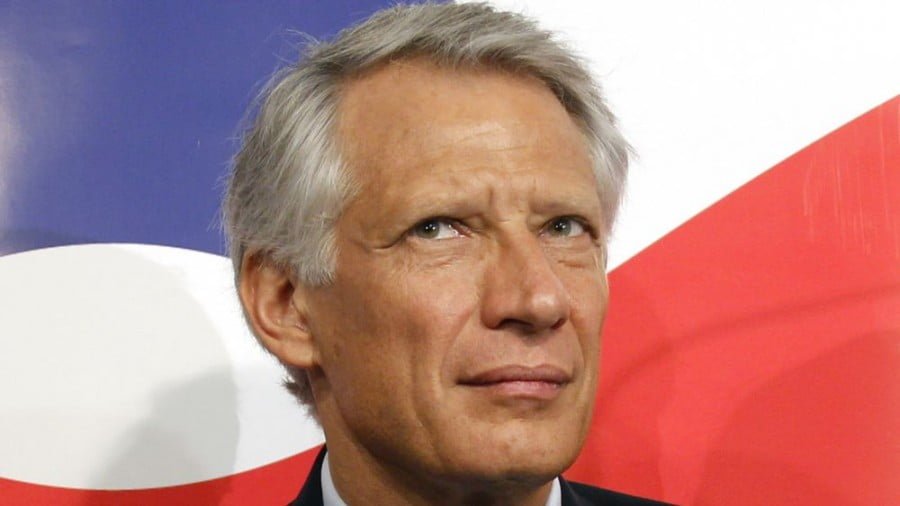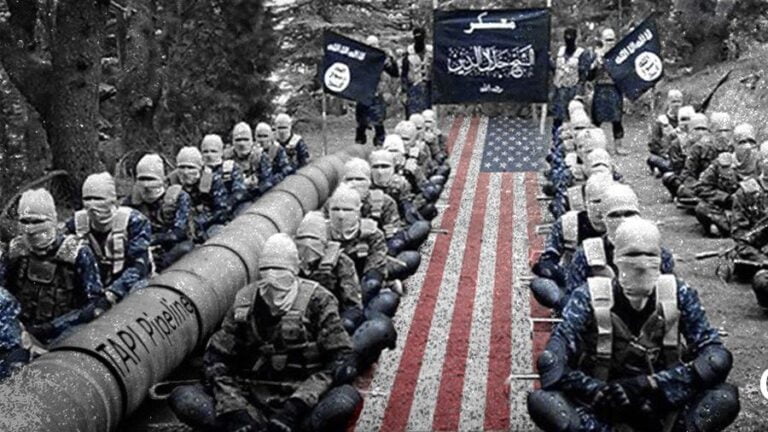War Coming in the Gulf? Saudi Prince Mohammed bin Salman’s Sarajevo Moment with Qatar
Crown Prince Mohammed bin Salman’s ultimatum to Qatar threatens a wider regional war pitting key allies of the US against each other.
In July 1914 warmongers in the Habsburg government sent an insanely worded ultimatum to Serbia. Emperor Franz Josef I – 84 and in poor health – did nothing to restrain them, whilst they were actually egged on by the Habsburg empire’s powerful but wilful ally, Kaiser Wilhelm II of Germany.
The result was a geopolitical catastrophe which brought about the end of the Habsburg empire.
In June 2017 warmongers in Saudi Arabia have sent an insanely worded ultimatum to Qatar. King Salman – 81 and in poor health – is doing nothing to restrain them, whilst they are actually being egged on by the Saudi Kingdom’s powerful but wilful ally, President Trump of the United States.
Will the result be a similar geopolitical catastrophe that will bring about the end of the Saudi Kingdom?
It is impossible to believe that anyone in Riyadh seriously believes that Qatar can comply with the terms of the Saudi ultimatum, just as no-one in Vienna in 1914 seriously thought Serbia would comply with the Habsburg ultimatum.
In both cases complying with an ultimatum phrased in such an extreme way would result in a complete loss of independence and sovereignty. For proudly independent countries like Serbia and Qatar that is inconceivable. Unsurprisingly the Saudi ultimatum has been rejected. The people who drafted the Saudi ultimatum in Riyadh cannot have expected otherwise, just as the people who drafted the Habsburg ultimatum in Vienna never expected it to be accepted either.
If the Saudi ultimatum to Qatar is intended to be rejected, just as the Habsburg ultimatum to Serbia was also intended to be rejected, the big question is what happens next?
In 1914, despite weeks of frantic diplomatic activity and attempts by the Serbian government to find some diplomatic solution to the crisis, the Habsburg empire attacked Serbia, setting in train a series of events which within days resulted in an all-out European war, which eventually became a World War. It is now universally accepted that this was the intention throughout, and that the Habsburg ultimatum was drafted so as to provide a pretext for war when the ultimatum was rejected.
Is there any risk of anything like that happening now?
Unfortunately the possibility cannot be excluded.
I have already written that the previously announced steps taken by Saudi Arabia and its allies – closing land and air links to Qatar and breaking diplomatic relations – look very like preparatory steps before an armed attack on Qatar
Whilst I do not know this for a fact, I think it is at least possible that Saudi Arabia’s breaking of diplomatic relations and the land and air blockade it imposed on Qatar were intended to be followed up by a ground invasion of Qatar.
Such an aggressive step would be very much in character for Saudi Arabia’s volatile de facto leader Deputy Crown Prince Mohammed bin Salman.
Much as former Iraqi President Saddam Hussein in 1990 mistook a conversation with the US ambassador as a green light from the US to invade Kuwait, so it is possible that the equally foolhardy Prince Mohammed bin Salman misread some comments of US President Trump during his recent visit to Saudi Arabia as a green light for a Saudi attack on Qatar.
Since I wrote those words Turkey has further ramped up its support for Qatar, Rex Tillerson and the US State Department have become more increasingly critical of Saudi actions, and Prince Mohammed bin Salman has been promoted by his father Crown Prince, putting him in a position where he is possibly no more than a few months away from succeeding to the Saudi throne.
It would be entirely in character for Prince Mohammed bin Salman – pressed by Rex Tillerson and the US State Department to clarify what Saudi Arabia actually wants from Qatar – to respond by doubling down, by sending an impossibly worded ultimatum to Qatar via the Kuwaiti mediators.
Prince Mohammed bin Salman’s previous behaviour points to someone who consistently and recklessly overplays his hand, and even if he is not actually planning a war against Qatar it could be that like a bad poker player he is responding to a challenge by raising his stake to ridiculous levels in the belief that no-one will then dare to call his bluff.
The question is what will he do when his bluff is called and the 10 day time limit in the ultimatum expires with Qatar still having failed to comply with it? Will he step back and permit the Kuwaiti mediators to do their work, or will he escalate further?
The list of demands in the ultimatum is so extreme that it is impossible to see how it can form the basis for a negotiation. If there is going to be a negotiated solution to this crisis – which Prince Mohammed bin Salman has single-handedly created all by himself – then the ultimatum will have to be dropped in its entirety.
In theory Saudi Arabia could try to sustain the status quo indefinitely by persisting with its air and land blockade of Qatar. However growing criticism of the blockade in the US might make that difficult, with US pressure probably increasing over time on Saudi Arabia to agree a compromise.
That would entail a climbdown, whilst doing nothing after the 10 day time limit of the ultimatum expires might anyway expose the ultimatum as too obviously a bluff.
That might be more than Prince Mohammed bin Salman can stand. He might fear that if were to climb down or fail to act on the ultimatum that would humiliate him before his father the King and the other Saudi Princes.
It would also surely lead to more questions being asked within Saudi Arabia about the quality of his judgement. Given that he is almost certainly already the target of criticism from some of the older Princes – including from some of his older brothers, who are being passed over for the throne – he might also fear that such a humiliation would weaken his position and damage his chances of succeeding his father.
In view of this there has to be a risk that rather than be humiliated by climbing down or having his ultimatum exposed as a bluff Prince Mohammed bin Salman might decide instead to double down further, and do what Saddam Hussein did in 1980, which is launch a ground invasion of a small but rich neighbouring Arab country which is daring to defy him.
After all like Saddam Hussein he already has form. Just as before attacking Kuwait in 1990 Saddam Hussein had previously in 1981 attacked Iran, so in March 2015 – just weeks after his father became King – Prince Mohammed bin Salman was the prime instigator of the disastrous Saudi intervention in Yemen.
If Prince Mohammed bin Salman really does order an attack on Qatar then there is a serious danger that the situation could spiral out of control.
Though Qatar is obviously no match for Saudi Arabia it now has the support of the two military giants in the region: Turkey and Iran. The Turks have already established a military base in Qatar (one of the Saudi demands is for Qatar to close it) and it is far from impossible that in the event of a Saudi attack on Qatar President Erdogan – who has denounced the Saudi ultimatum in the strongest terms – might feel that he has to come to Qatar’s rescue.
If so then just as the Habsburg officials in 1914 miscalculated the international reaction to their attack on Serbia, so Prince Mohammed bin Salman might find that he is miscalculating the regional reaction to a Saudi attack on Qatar.
The country which ought to be working diplomatically to prevent this disaster happening is the US. Saudi Arabia is a key ally of the US, just as the Habsburg empire was Germany’s key ally in 1914. Moreover just as Germany in 1914 wielded decisive influence in Vienna, so the US today wields decisive influence in Riyadh. Strong diplomatic action by the US in Riyadh would be the one certain way of preventing a Saudi attack on Qatar.
Unfortunately President Trump is inexperienced in international affairs, apparently feels personally beholden to the Saudis after his recent visit to Riyadh, and is weighed down by the Russiagate scandal. The result is that the US seems incapable of responding strongly to the crisis, with President Trump and Secretary of State Tillerson sending out discordant signals.
I still believe that in the end sense will prevail and that there will come a point beyond which further escalation stops. However the potential for things to go wrong – with Turkey and Iran coming to the aid of Qatar in a war with Saudi Arabia which pits two key US allies – Turkey and Saudi Arabia – against each other, cannot be completely excluded.
To the anxious contemplation of such dangerous scenarios do the unrestrained follies of Prince Mohammed bin Salman inexorably lead.
By Alexander Mercouris
Source: The Duran







